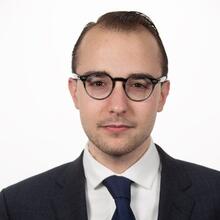The evening was one that few know about, and in some ways seems unlikely. On Monday, Sept. 16, on the eve of the opening of the 68th session of the United Nations General Assembly, leaders from around the world gathered in prayer just a block away from the U.N. complex at the Church of the Holy Family.
A large number of clergy were present at the service to represent the great diversity of faiths in our world. With Timothy Cardinal Dolan presiding, flanked by Archbishop Francis Chullikatt, Apostolic Nuncio to the United Nations, and the Rev. Gerald E. Murray, pastor of the Church of the Holy Family (which acts as the Catholic parish for the U.N.), ambassadors, N.G.O. representatives, U.N. officials and friends raised their hearts and hands and voices in gratitude to God, but also prayed for God's help in aiding men and women everywhere.
What proved most interesting at this year’s prayer service was the heavy emphasis on Syria. In previous years, Mr. Ban Ki-moon, the Secretary General of the United Nations, and others who have spoken at the service often mention a variety of issues. But the problems in Syria took center stage this year, with Fr. Murray, Archbishop Chullikatt and Cardinal Dolan all making remarks about the necessity to act in Syria, so that life may be preserved and respected. However, it was Mr. Ban and Vuc Jeremic, president of the 67th Session of the United Nations General Assembly, whose remarks focused most heavily on Syria and the various growing crises around the world.
Mr. Ban spoke first, and he provided a comfortable yet inspiring atmosphere. He spoke of the various works of the U.N. and expressed gratitude to the hundreds of thousands of volunteers around the world who know how much work there is yet to be done, mentioning in particular “the great test of Syria…and other fires raging,” asking for “strength to tackle an immediate crisis (Syria), but also the determination to focus on the long term.” Mr. Ban turned his attention then to the religious aspect of Monday evening’s service and spoke about how religion can bring us together rather than separate us. “There is a wonderful diversity in the worlds many religions,” he said, “yet they share the basic values of peace and human dignity for all.”
Mr. Ban also made reference to his meeting with Pope Francis in April, calling him “a great champion for peace,” and that he was “profoundly moved by his (Pope Francis’) passion and compassion.” Mr. Ban noted how the pope “has sparked the global imagination with this deep sense of humility and humanity, in large and small ways.”
The Secretary General also added a personal note, saying, “My granddaughter…is a constant reminder of the work we must do so that every child might have the opportunities that she might have.” Mr. Ban closed his statements remarking that he “count(s) on people of faith to build bridges, one religion to another; from one community to another; and from the present to the future we want” and added a call to “join forces in gratitude and a shared commitment…and build a world of dignity for all.”
Mr. Jeremic made remarks echoing those of Mr. Ban. He recalled his own experiences as a member of a country that no longer exists (Yugoslavia) and the atrocities that occurred in the Balkans in the early 1990s. Mr. Jeremic spoke at length about the need to end conflicts like those in Syria because of our duty to one another as human beings. He, like Mr. Ban, focused on religious unity, questioning those present to see if they could remember a religious service that does not end with some semblance of “Go in peace.” Mr. Jeremic stated, “Even when the living have passed on, we say “May They Rest in Peace.” That’s what the world wants and needs. Peace.”
Mr. Jeremic closed the evening, calling on each person present to become an individual who stands for peace and justice in our broken world. The former president ended his remarks, fittingly, with St. Francis of Assisi’s prayer, “Lord, make me an instrument of thy peace.”
Although the United Nations is an international, political organization that is non-sectarian in its mission, that fact clearly does not mean that the individuals who work with the U.N. are not spiritual creatures. The idea of ambassadors and representatives from around the world praying in communion may seem foreign to many of us, but many of these leaders are motivated by deeper ideals than simply upholding the Declaration of Human Rights (which is a significant part, nonetheless). It is comforting to see so many of the world’s representatives praying in unison that they may achieve their goal of peace and dignity amongst all of mankind.








